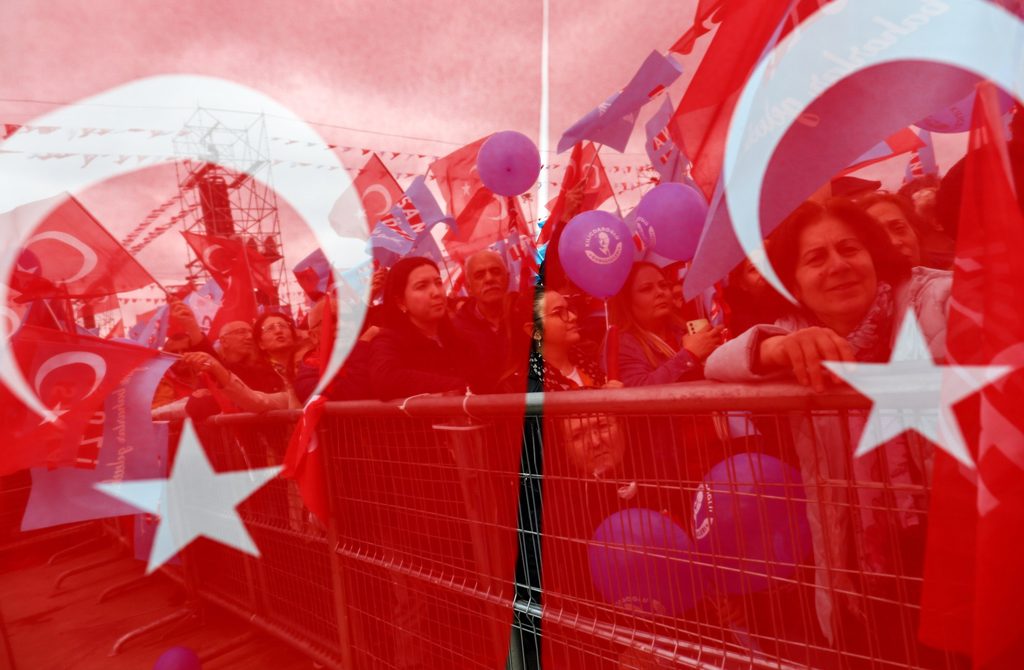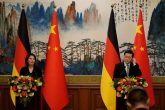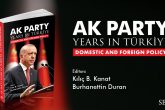Türkiye will hold both presidential and parliamentarian elections on Sunday. It is generally being shared that Türkiye is at a crossroads. All internal and external observers consider the elections as the most important elections in the whole world. That is, it is not only vital for the Turkish people but also important for the region and even for the world. The results of the Turkish elections will have significant implications for both national and international politics. Today, I want to take some notes on the Western perceptions of the coming elections.
First, the Western media and think tanks have clearly chosen their side, the anti-Erdoğan position, as they are accustomed to. They have been trying to mobilize large-scale support for the opposition, claiming that they want to overthrow the government of President Recep Tayyip Erdoğan and replace it with a “democratic” front. However, it is not a secret that the West always prefers a dependent authoritarian administration to an independent democracy. The reason why they do not like Erdoğan is his Ankara-centered political discourse and his emphasis on the political independence of Türkiye. Erdoğan rejects playing the game according to Western rules. Instead, he prefers to pursue a policy according to the needs of his country. The West is not happy about Erdoğan’s political discourse, which asks for an equal partnership with its Western allies, rather than a hierarchical relationship.
Second, while Erdoğan insistently declared that he is determined to rule Türkiye for the Turks, not for the national interests of the West, the opposition claims that they will seek a much closer approach with the West. According to the joint text prepared by opposition parties and explanations by opposition figures, if they come to power, they will return to the F-35 program, initiate the accession process with the European Union, and help ease and lift visa requirements for Turks for visits to the Schengen region. If this will be the case, it is obvious that it will have a cost, and they will have to give something in return. In other words, the opposition will behave as per Western countries’ expectations. One of the results of this policy will be worsening relations with the non-Western part of the world, namely with the Russian Federation and the Muslim world.
Third, just as the Western countries recruited Nazis after World War II, they recruited the leftists and ex-communists after the collapse of the Soviet Union and used them to their advantage. Therefore, it is no surprise that yesterday’s anti-imperialist and anti-Western leftists nowadays serve the interests of Western countries. It is ironic that these political actors such as the main opposition Republican People’s Party (CHP) and the pro-PKK Peoples’ Democratic Party (HDP) simultaneously claim that they are both leftists and also close allies of the West, who fought against communists for decades. It is interesting that neither side question this anomaly. Almost all mainstream and radical leftist political actors are supported by the West in their struggle to overthrow the AK Party government, which represents the national and independent perspective.
West’s concerns about opposition bloc
Fourth, there are some concerns from Western countries about the future of the opposition bloc, a coalition of different and even conflicting political views. They are aware of the fact that if the opposition comes to power, it will not be easy to follow a uniform domestic and foreign policy. Nobody knows how the leader of this coalition, if there is any, will keep the blend in ideas and harmonize different perspectives. The parties in the opposition bloc have agreed to overthrow the ruling AK Party and its leader, President Erdoğan, but they will face many challenges on how to rule the country. In other words, it seems that their union will not extend to the grave (“mezar” in Turkish), but till the market (“pazar” in Turkish). The seven-party coalition bloc includes mainstream leftists, radical leftists, moderate Turkish nationalists, ultra-Turkish nationalists, secularists, religionists, liberals and conservatives. No concrete plan has been laid out so far on the harmonization of these conflicting perspectives.
Fifth, everybody knows that the Western media and governments have already drilled the last nail in the coffin of liberal democracy. They have lost moral superiority for their unilateral policies in the non-Western part of the world and their interventions in the domestic affairs of democratic countries. In the non-Western world, it is generally known that Western support is for the maximization of their national interests, rather than the prioritization of some universal values. For instance, Western countries have significantly contributed to the transformation of the Arab Spring into an Arab winter. They have changed elected governments with repressive administrations. They accept the result of general elections, only if it is in favor of Western-oriented and Western-dependent actors. The Western countries’ main concern is not the protection of liberal values, but the maximization of their national interests. In other words, since the Turkish masses know that the West does not favor the national interests of Türkiye as in the case of their support for both PKK and the Gülenist Terror Group (FETÖ), the Western support for the anti-Erdoğan bloc will backfire.
All in all, I believe that the increased awareness of the Turkish people, especially after the failed coup attempt of July 15, 2016, will see off all these external attempts. As a matter of fact, most of the Western interventions in the domestic affairs of Türkiye are counterproductive. The Western media and political circles will once again see that their coarse intervention mainly serves two purposes. First, the Western meddling in Türkiye’s elections will further increase anti-Western sentiments in the country. Second, the Western interventions will empower the targeted side, the national and independent bloc, the leadership of Erdoğan, and the votes of the People’s Alliance.
In this article
- Opinion
- 14 May 2023 Turkish General Election
- 2023 Turkish General Elections Presidential Candidates
- 2023 Turkish Presidential Election
- Daily Sabah
- F-35 Fighter Jet Program
- Fethullah Terrorist Organization (FETÖ)
- Kemal Kılıçdaroğlu
- Kurdistan Workers' Party Terrorist Organization (PKK)
- Türkiye
- Türkiye's 2023 Elections
- Western Media
- Western World



